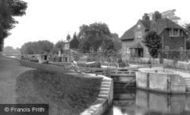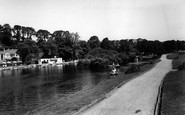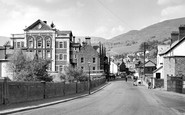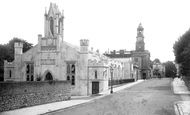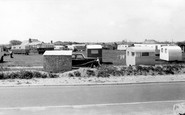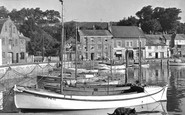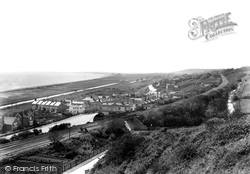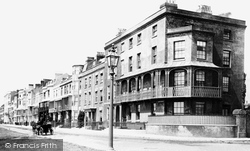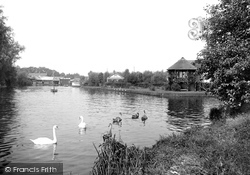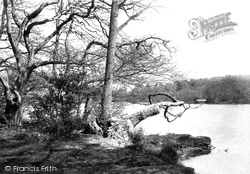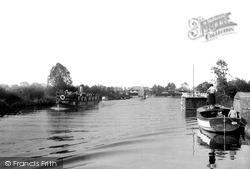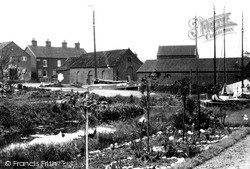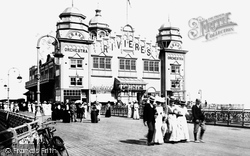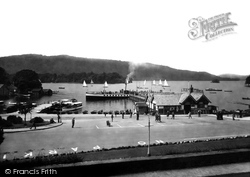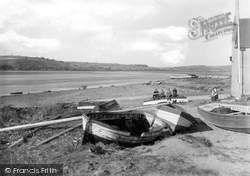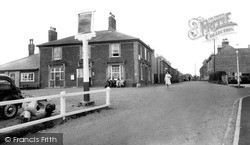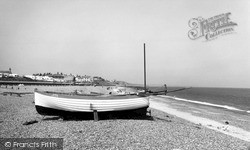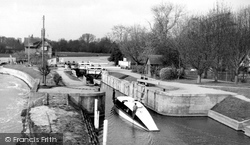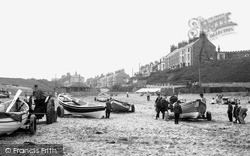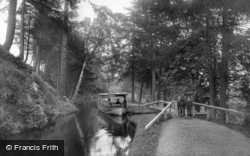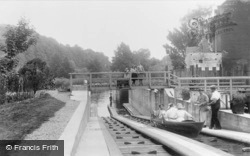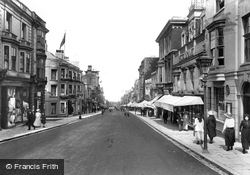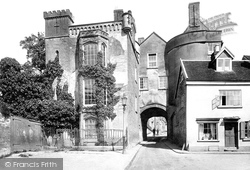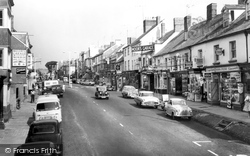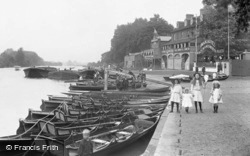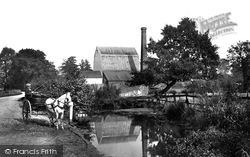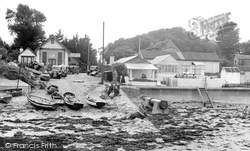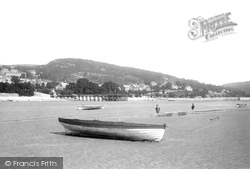Photos
Sorry, no photos were found that related to your search.
Maps
9 maps found.
Books
2 books found. Showing results 313 to 2.
Memories
561 memories found. Showing results 131 to 140.
Lock Keeper
My grandfather, Edward Ernest Light, was the lock keeper at Sonning when this photo would have been taken. He was married to Lily and they had 3 sons, Edgar, Harold and Len, and a daugher Evie. Harold was my father and was born in the ...Read more
A memory of Sonning in 1910 by
The Lakes
My grandparents lived in Heathfield Road all during and after the Second World War, my granddad was responsible for looking after the boat house and I think a punt for pulling out drowned swimmers, now all gone, he also looked after the ...Read more
A memory of Keston in 1940 by
The Boating Lake
I grew up in Newquay - and Trenance Boating Lake was a favourite haunt. There were rowing boats, and some motor boats were added at some point. As I was only 5 in 1960, I was restricted to the paddle boats- which were in an ...Read more
A memory of Newquay by
The Farm On Broad Lane
I was four years old and lived with mum in a caravan parked in this farmer's field along with other caravaners. Mum and dad would have paid rent to the owner of the farm. I was the only youngster around and had no ...Read more
A memory of Burtonwood in 1959
Treorchy
I was born on High Street in Treorchy in 1959 in the house that belonged to my grandparents and that my mother still lives in today! We moved to Stafford in 1962 for work for my Dad but came to visit Treorchy a few times a year. I ...Read more
A memory of Treorchy in 1969 by
Radlett Prep
I attended Radlett Prep between 1958 and 1965. It was located in a converted three floored Edwardian house on the corner of Hillside Avenue and Aldenham Grove, and has since been converted back to a private residence. Aldenham Grove ...Read more
A memory of Radlett by
My Old Gran, 1950s
My name is Peter Smith. I have some wonderful memories of Ryde. The flying boats in East Cowes is one of them. The trams that ran through Ryde, before the underground stock was bought in from London. I remember being severly told ...Read more
A memory of Ryde in 1957 by
Walcott Caravan Site
The old showman's type caravan at the back of the field was owned by a Mr Palmer and was still on the site in 1970 when we left (the site was being sold). Mr Palmer had a small dinghy in which he used to go fishing out to sea, ...Read more
A memory of Walcott in 1967 by
The Girl Maureen
She was launched as a rowing lifeboat, Docea Chapman, and came to Padstow as a relief boat. She was only on station for nine moths then laid up. I am the girl Maureen. Father bought her in 1952 and converted her into a fishing ...Read more
A memory of Padstow in 1960 by
Broad Street
My Great Great Grandfather, Abraham Alexander Caddick was Landlord of the Swan Inn in Broad Street around 1900.
A memory of Blaenavon in 1890 by
Captions
650 captions found. Showing results 313 to 336.
The village of Seabrook has now merged with the town of Hythe, but at the time of this photograph was quite separate.
Although called a terrace, the houses are by numerous builders and unified by broad style alone.
One of the three main rivers which drain the Broads, the Bure is typically slow-flowing; a large number of cruising boats from Collins & Son (in the background) confine their cruising to the River Bure
Fritton Lake, like the Broads, originated as a series of peat pits in the medieval period. It was later used as a duck decoy. The ducks were drawn into the decoy by the decoy man's dog.
A pleasure steamer, the 'Queen of the Broads', crowded with tourists and well equipped with life belts, ploughs her way round the wide bend of the river Bure and down towards the sea.
The Museum of the Broads is now housed in the brick building with decorative arches alongside the staithe.
Crowds stroll along the pier, beside the original Pavilion, where the popular French conductor Jules Rivieres and his grand orchestra are playing.
The steamer 'Swift', launched in 1900 as the then largest boat on the lake, sits at the end of the pier, whilst a cluster of yachts, possibly racing, passes between the boat station and
The lifeboat house was deemed necessary by the local authorities in view of the dangerous channels and sandbanks already noted.
This view looks north along the beach. The fishing boat is drawn up on the beach, and in front of the boat a child makes sandcastles in the narrow strip of pebble-free sand.
This view looks north along the beach. The fishing boat is drawn up on the beach, and in front of the boat a child makes sandcastles in the narrow strip of pebble-free sand.
During the early part of the 20th century, the boat-building firm of Samuel Saunders took over Goring wharf.
Fishing cobles on their wheeled trailers are drawn up above the high tide watermark, and two of the familiar old rusty tractors which pull the boats in and out of the sea can be seen.
Long before the holiday boat industry took off, a trip behind a horse-drawn boat in Llangollen was a popular outing.
These elevators were installed at a number of busy locks to cope with the vast numbers of small leisure boats spawned by the boating craze these views capture.
A fine view down the length of Union Street in the last peaceful days before the First World War.
The very narrow Broad Gate is obviously named for the street rather than the width of the gate.
The High Street again, and a much busier scene is shown. The road is the A30 London to the west of England road which, even in 1955, could become horribly congested, especially at summer weekends.
Girls pose with shrimping nets outside the Swan Hotel, with its boats for hire. The coal lighters are discharging coal at the Old Town Wharf.
Girls pose with shrimping nets outside the Swan Hotel, with its boats for hire. The coal lighters are discharging coal at the Old Town Wharf.
Its harbour has always been a place to pass a lazy afternoon and eat snacks as you watch the boats. Riley's Pantry, seen here on the right, advertises fresh lobster sandwiches at 6d each.
The anchor to the right would hold the boat in the foreground in place when the next tide came in.
Crowds stroll along the pier, beside the original Pier Pavilion, which is advertising the popular French conductor Jules Rivieres and his grand orchestra.
Here we see that the tide has surged up the River Fowey and has filled the broad, tree-lined River Lerryn.
Places (0)
Photos (0)
Memories (561)
Books (2)
Maps (9)

